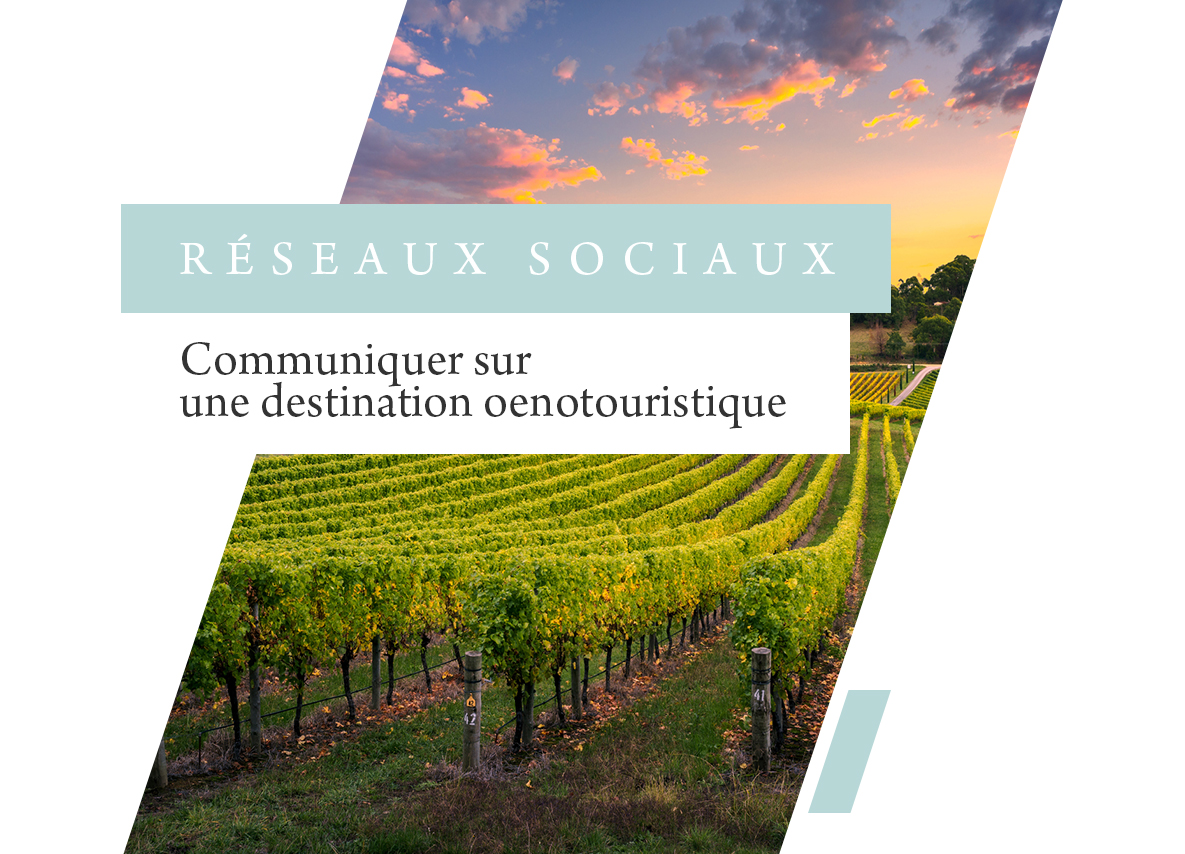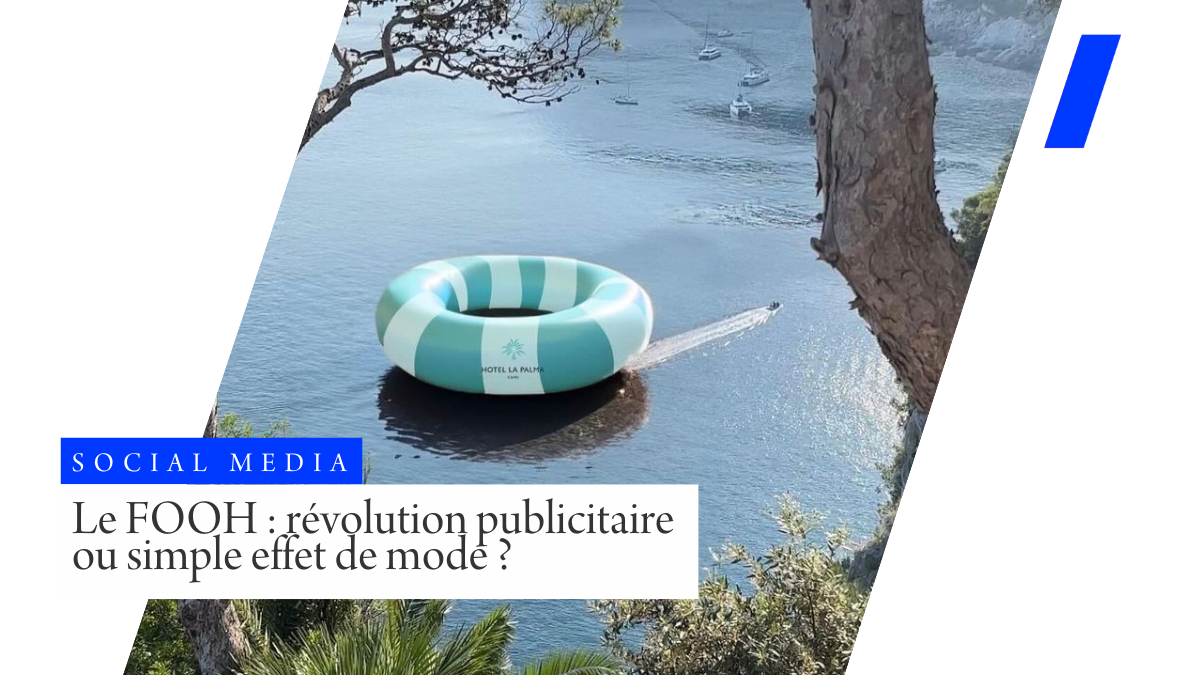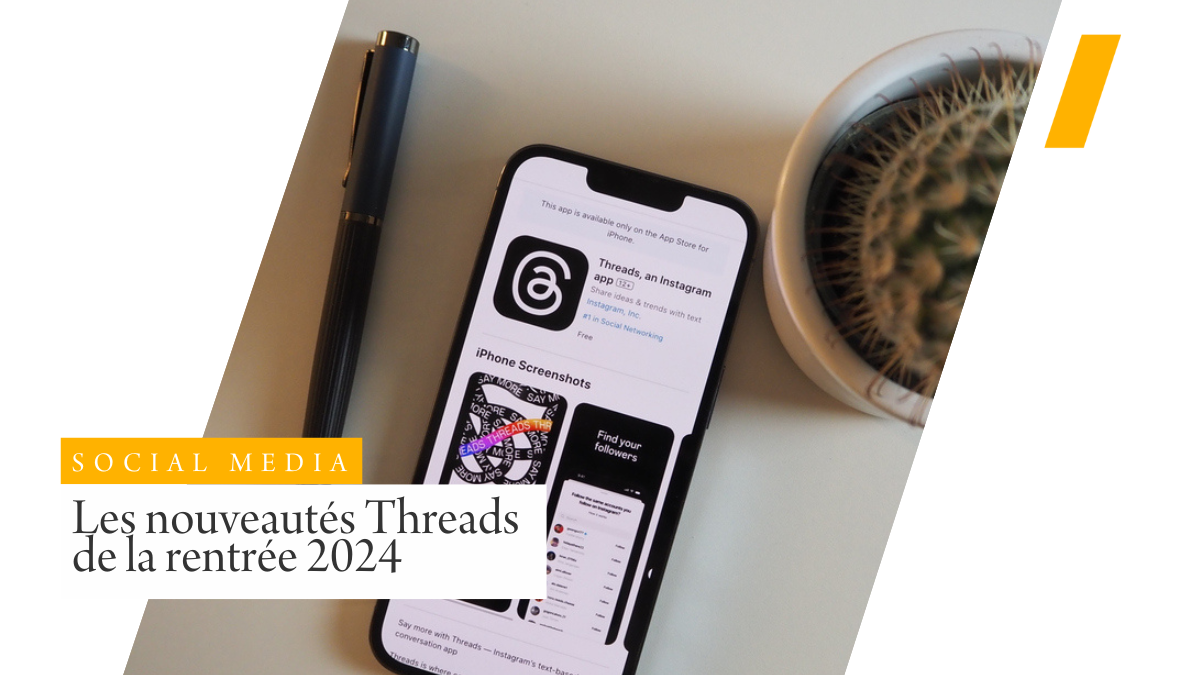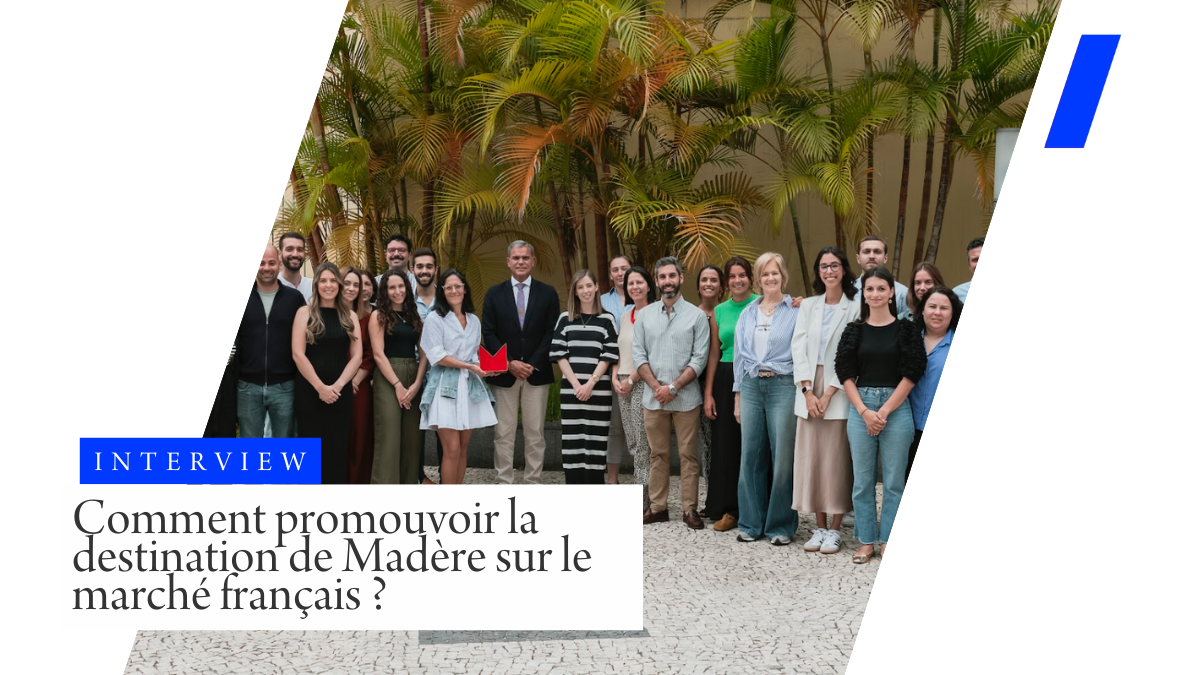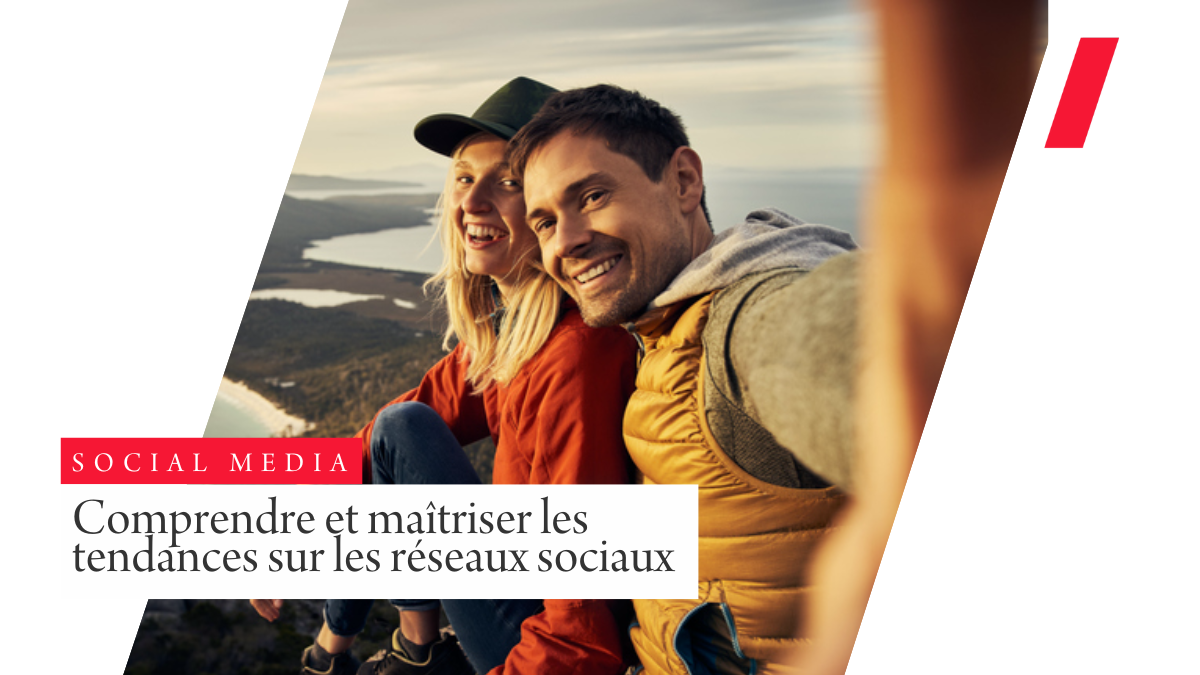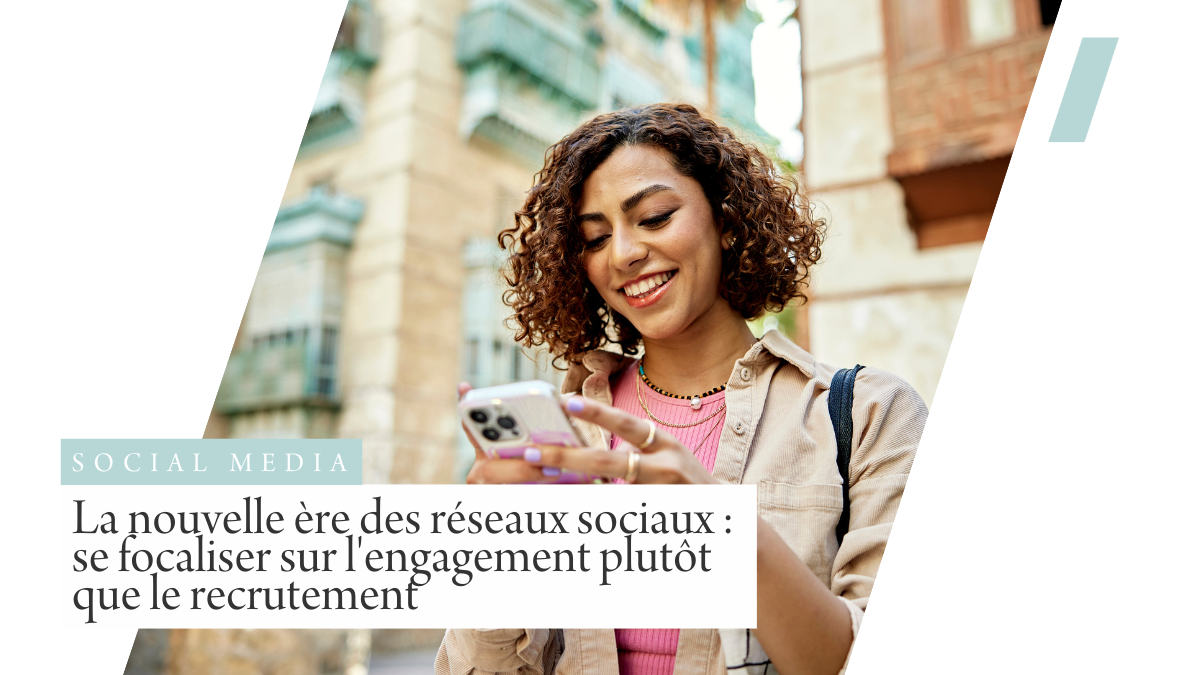Does the word “wine tourism” mean anything to you?
Oenotourism is tourism that involves discovering wine-growing regions and products, and thus promoting France’s rich heritage.
It’s therefore a sub-category of rural tourism, involving the discovery of authentic terroirs, farmers and winegrowers.
Let’s get back to the origin of this word… It’s born from the association of two Greek words: oinos meaning wine and logos, science.
Thus, oenology refers to the study and knowledge of wine.
However, despite the region’s potential and opportunities, wine tourism is still underdeveloped in France.
Indeed, it can be difficult to communicate about wine, as this is tantamount to communicating about alcohol.
You have to be vigilant and respect certain rules, in particular by not encouraging heavy consumption of this beverage.
Discover below our tips for communicating as a French wine tourism destination.
A few figures on wine tourism in France
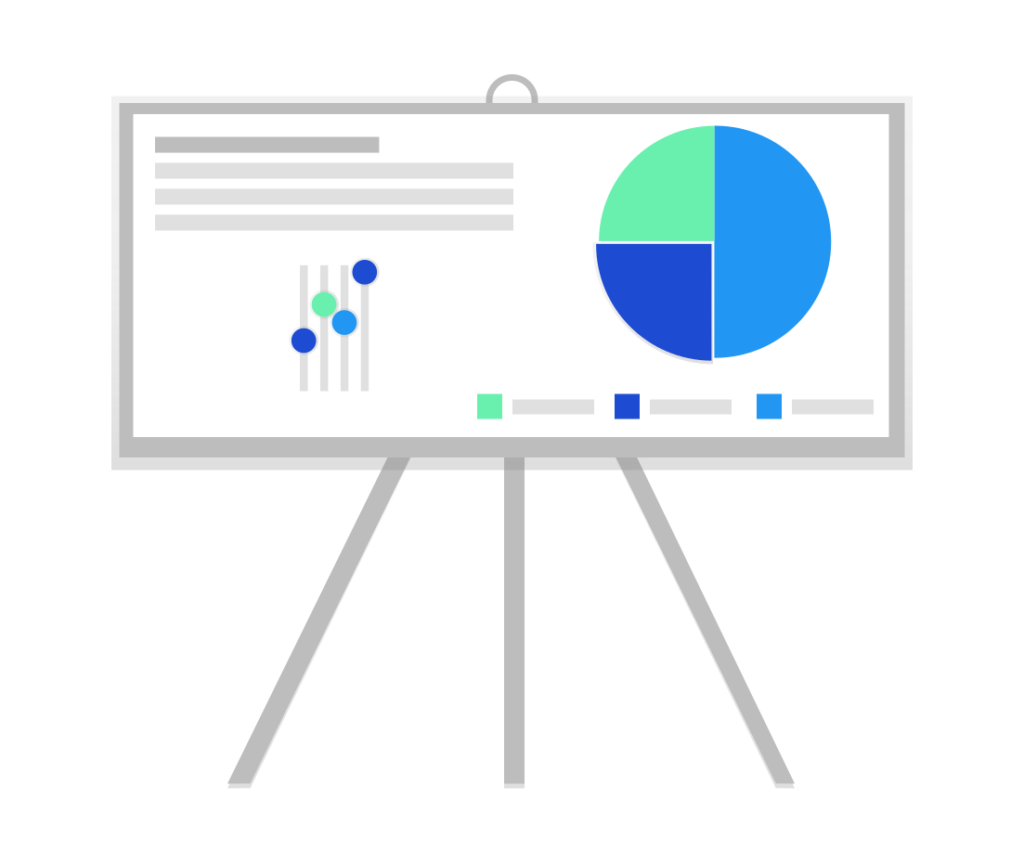 First of all, to appreciate the potential of this tourism for destination France, it’s worth noting a few figures.
First of all, to appreciate the potential of this tourism for destination France, it’s worth noting a few figures.
According to Atout France, there are some 10,000 wine cellars in France, attracting some 10 million visitors a year and spending a total of 5.2 billion Euros.
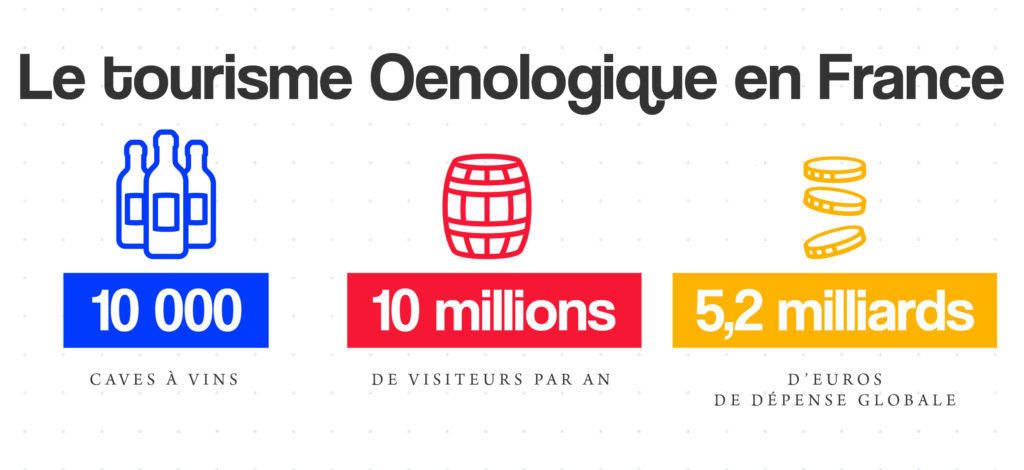 It’s also interesting to know that 16% of the world’s wine production comes from France, with 17 out of 22 regions producing wine.
It’s also interesting to know that 16% of the world’s wine production comes from France, with 17 out of 22 regions producing wine.
In addition, there are 31 museums and thematic sites that welcome over 1 million tourists every year.
It’s also worth noting that 42% of this clientele is foreign, mainly Belgians, Britons and Germans who appreciate discovering the French art of living.
These figures prove that wine tourism is a type of tourism with great potential for France.
Indeed, when tourists are asked about their reasons for visiting France, wine and gastronomy are the most obvious.
The challenges of communicating a wine tourism destination
As a wine tourism destination, it’s essential to implement a relevant and effective digital communications strategy.
The objectives of this communication are multiple: firstly, it will enable you to develop your visibility and notoriety in order to increase the number of visitors to wine tourism-related sites, as well as to your destination in general.
Wine tourism also enhances the local fabric, i.e., the tourist appeal of rural France, which is often overlooked.
Wine tourism thus represents a high-potential tool for promoting the region.
As a result, it will also boost sales of the region’s wine products, as well as tourism-related expenditure benefiting local players such as accommodators and restaurateurs.
As you can see, this is a market that could prove to be highly profitable for your destination’s economy.
Wine tourism and collaboration with influencers
Wine tourism attracts people because it offers authentic experiences, the chance to discover French terroir, professions and unique know-how.
It’s important to communicate the values and benefits of this type of tourism.
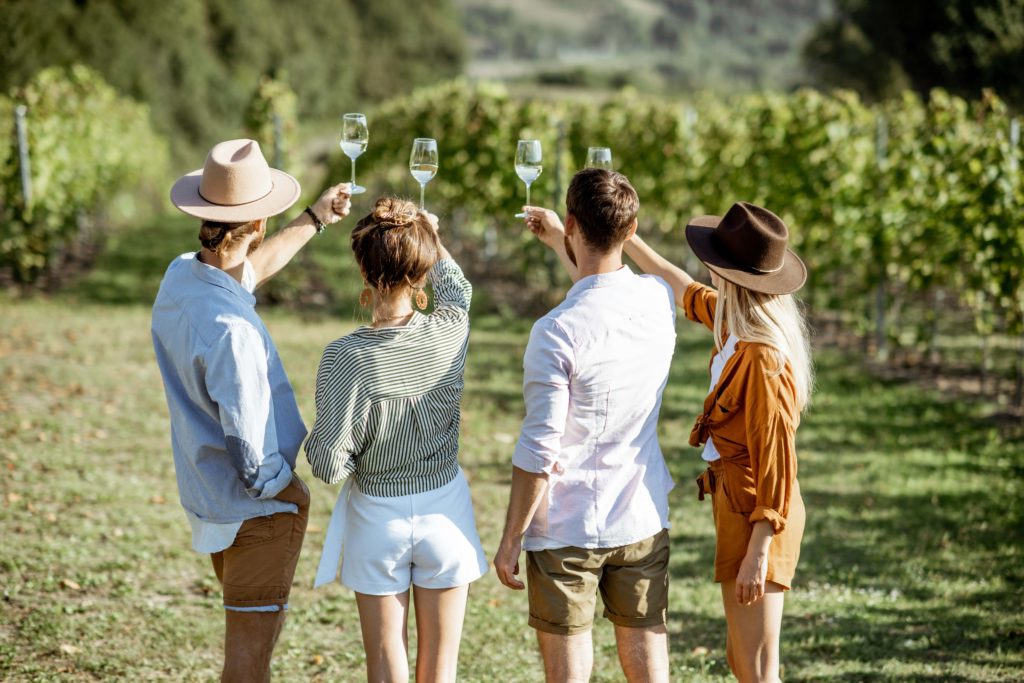 If your destination has winegrowing estates, you can take advantage of the opportunity to promote meetings and moments of sharing between visitors and passionate professionals.
If your destination has winegrowing estates, you can take advantage of the opportunity to promote meetings and moments of sharing between visitors and passionate professionals.
For example, during a visit to a winery, visitors can talk to the winemakers and grape-pickers, and learn more about the history of the winery, as well as the different stages of production.
You can also emphasize wine tastings, an essential part of wine tourism.
And take the opportunity to illustrate the expertise of your oenologists by highlighting their professionalism.
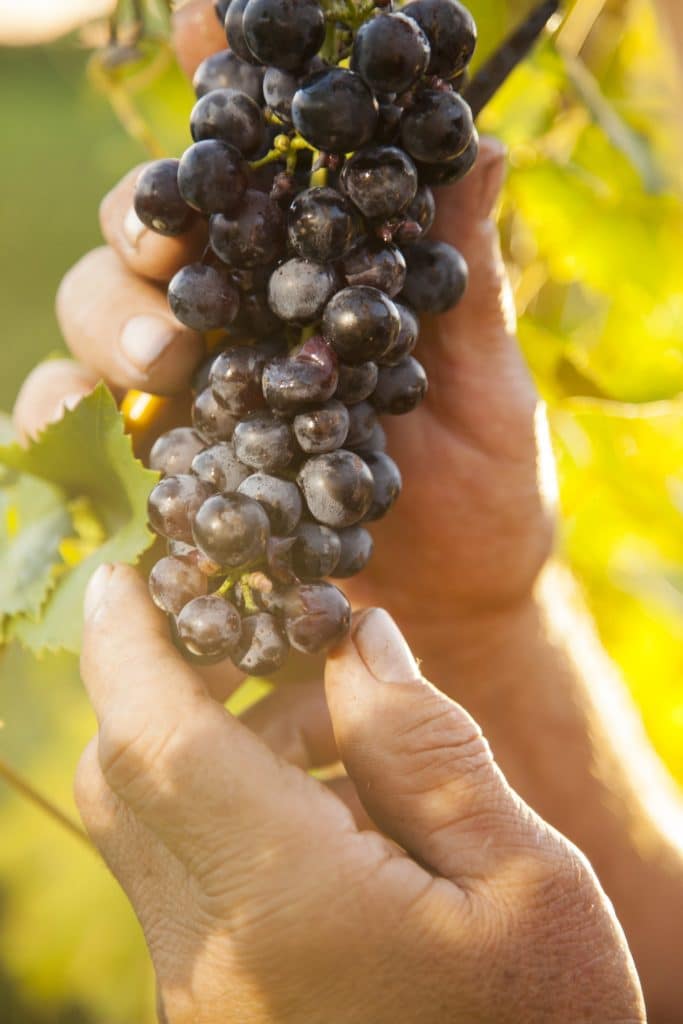 If your destination is on one of these routes, we strongly recommend that you publicize it.
If your destination is on one of these routes, we strongly recommend that you publicize it.
In France, these routes can be explored by car, on foot or by bike, and offer magnificent scenery that should be an integral part of your communication strategy.
Vineyards are a great way to showcase France’s heritage.
To illustrate, in 2017 we managed communications for the 80th anniversary of the Route des Grands Crus de Bourgogne for the Côte d’Or department.
For the occasion, we developed a special website, wrote monthly articles to optimize SEO, and developed numerous partnerships with the local and international press, as well as with the local community.
Last year, the Route des Grands Crus de Bourgogne was revived thanks to a collaboration with influencers Nos Curieux Voyageurs and Quentin Lafon.
To continue promoting the route, they visited vineyards and conducted wine tastings, which they promoted to their communities on their social networks and via blog posts.
We’d like to remind you that it’s important to think about your communication strategy with your personas in mind.
Wine tourists have specific characteristics that need to be taken into account to create relevant content.
In a nutshell, they’re epicures, people who like to enjoy life’s pleasures, explorers who like to discover places far removed from mass tourism, and gourmets who are interested in French wines and gastronomy.
These are generally people between the ages of 30 and 60, from higher socio-professional categories.
There are also different types of personas: travelers (who spend the night), visitors (local area, who travel for the day) and …..
The local.
To be able to target a foreign clientele, we advise you to translate all your posts into English, adapting them if necessary to the needs of foreign markets, and to sponsor them by targeting an audience in foreign countries (England, Germany, USA, Canada…).
It might also be worth creating dark posts that won’t “pollute” your Facebook feed.
Create inspiring content inviting visitors to discover the vineyards
Some wine tourism destinations are innovating by developing unique activities such as a hike through the vineyards, pruning shears in hand, to learn more about the winegrower’s craft.
Some wineries even offer visitors the chance to make their own wine and take home a bottle with a personalized label, a fun and entertaining activity that is a big hit with visitors.
In Alsace, we’ve found that many wineries offer workshops on topics such as cheese and wine pairing, or biodynamic viticulture.
It’s even possible to take a course in qi gong, Chinese gymnastics, in the vineyards.
Straddling the line between wine tourism and ecotourism, the theme of organic or biodynamic wine represents the future post COVID-19.
Since 2012, organic wines have been subject to European specifications.
Before harvesting, for example, the only authorized treatments must be sulfur- and copper-based.
Biodynamic wines, for their part, are not subject to any regulations, but the winemakers use only natural products and base their work on the lunar calendar to promote exchange with the earth.
The emergence of these types of production reflects values that respond strongly to today’s challenges: respect for the environment and consumption of healthy, natural products.
We can also mention the south of France, which has numerous hotels that have developed thanks to their vineyards, or the Associations that have been created and are developing events to attract French tourists from the 4 corners of France, as well as international tourists.
For example, every year, Bandol Wines organizes the “Escapades Gourmandes” in partnership with Var Matin, with the aim of offering several days of gourmet tours through the vineyards to showcase the Var’s wealth of wine tourism and its various estates.
Events thus appear to be another form of communication to develop the visibility of a wine destination.
All these innovations and developments in wine tourism represent a real motivation and revolution for professionals wishing to increase this type of tourism.
These are activities and experiences that you absolutely must highlight in your digital communications, in order to create original and authentic content.
There are a number of communication actions that can be applied to this: creating videos, running operations with influencers or organizing contests…
Atout France, events and challenges
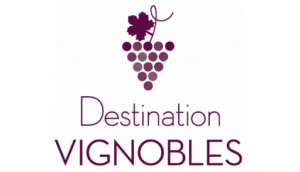 Let’s talk about Destination Vignobles, this trade show organized by Atout France every two years, will take place this year in Aix en Provence from October 6 to 7, 2020.
Let’s talk about Destination Vignobles, this trade show organized by Atout France every two years, will take place this year in Aix en Provence from October 6 to 7, 2020.
This flagship wine tourism trade event will give tour operators the opportunity to learn about and discover France’s many wine tourism destinations.
The objective is simple: to network and develop visibility.
An event not to be missed!
If you are an exhibitor, we recommend that you publicize your presence at the show.
In particular, via a dedicated newsletter and on your social networks.
But Atout France hasn’t stopped there: in partnership with “Terre de vins”, it has also created the Trophées de l’œnotourisme.
The second edition will be held in 2020.
The aim: to reward the excellence of wine estates in our French regions, divided into nine categories.
This challenge will undoubtedly enhance your brand image and communications, as you’ll benefit from the “Terre de vins” audience by being featured on their media and those of their partners.
A great opportunity to seize!
Wine tourism and sustainable tourism?
After these few tips, don’t forget to remain vigilant so as not to lead to a “disneylandization” of the region.
While it’s important to develop this type of tourism, it’s also important to limit the damage caused by mass tourism.
For many vineyards, particularly in Bordeaux, the term “disneylandization” is used.
This term refers to the changes implemented to meet the expectations of experience-seeking tourists.
As we saw earlier, winegrowers and winemakers have to innovate to welcome and seduce visitors.
So they don’t hesitate to adapt and rethink their estates to satisfy wine tourists.
In some cases, the result is a real “mise en décor”.
The term is also used to refer to wine tourism facilities that are being developed without winegrowers or vines, such as the Cité du Vin in Bordeaux.
That’s why it’s essential to reduce this artificialization by returning to the essentials of wine tourism, as we saw when analyzing the persona: human encounters, sharing, discovering an exciting profession and wine!
It’s fair to say that wine tourism has an infinite richness, as there is a fascinating diversity of territories, vineyards and activities related to this art of living in France.
Wine tourism is a great way to discover new cultures, deepen your knowledge and meet friendly locals.
Unfortunately, this form of tourism is not yet sufficiently promoted, despite its great potential.
It is therefore important to use the many communication levers available to develop and maintain wine tourism in France, while remaining respectful and attentive to the values of this tourism so as not to harm its environment.
